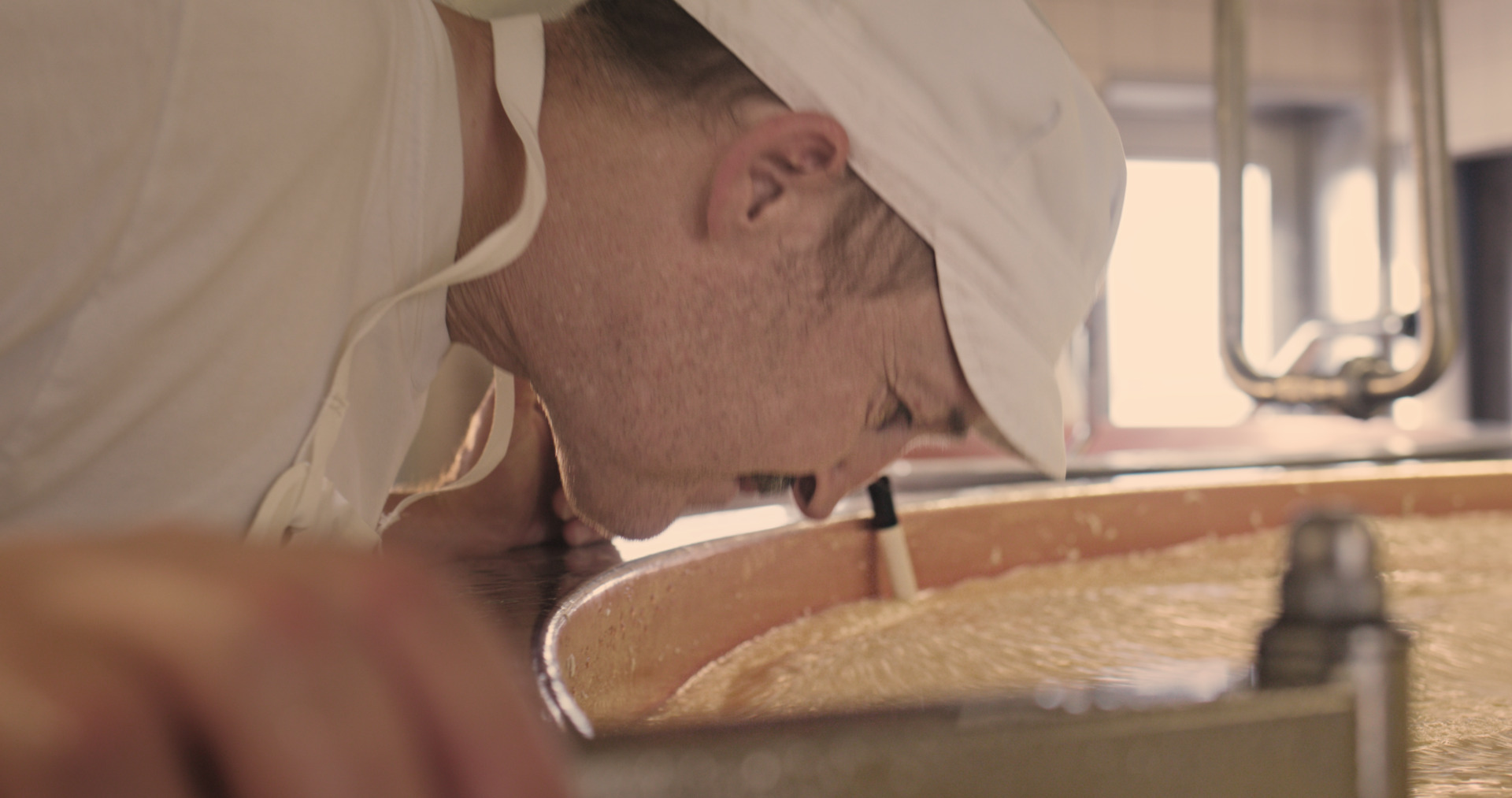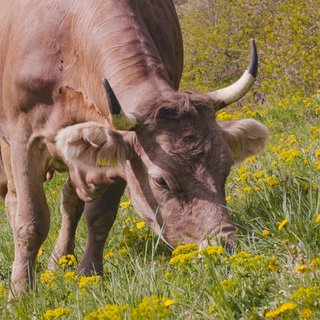Swiss cheese is made solely from natural ingredients. As such, it perfectly caters to the present day need to enjoy natural products and to eat healthily. And: the Swiss cheese industry voluntarily refuses to use colourings and preservatives, which are actually permitted by law. This is stipulated by the cheese industry code – a kind of purity law for Swiss cheese.
Everything for the good of nature
Cheeses from Switzerland are a natural product: from the high-quality Swiss milk to the rennet to the bacteria cultures. There are plenty of good reasons to choose Swiss milk, including Switzerland’s grassy landscapes, good food, strict animal welfare laws, as well as regular, independent inspections. Swiss milk is known as “white gold” for a reason.
But the cheesemaking and the affinage (care and maturation) are also synonymous with nature in Switzerland. There are no issues with E numbers, preservatives or flavour enhancers – Cheeses from Switzerland are pure nature from the best of Switzerland.
Cheeses from Switzerland are loved across the world. For its unique flavour, its indisputable quality and its authenticity. This authenticity is due to craftsmanship and passion, combined with the high demands that local cheesemakers have for their own work, and stringent rules, regulations and controls. Switzerland’s Ordinance on Foodstuffs stipulates the requirements for foods of animal origin and regulates their specific labelling. Then there are strict environmental and hygiene requirements, as well as industry-specific and type-specific production guidelines.

Switzerland’s Ordinance on Foodstuffs
There are very precise rules and regulations for the production of cheeses from Switzerland. The Swiss food law defines this food and products made from it in the Ordinance on Food of Animal Origin (Verordnung über Lebensmittel tierischer Herkunft, VLtH). The ordinance also stipulates the requirements facing these products and regulates their labelling. This is based on the Foodstuffs and Consumer Products Ordinance (Lebensmittel- und Gebrauchsgegenstände-Verordnung, LGV).

Voluntary ban on additives
Just as is the case within the EU, cheesemakers are permitted to add certain additives when making and maturing cheeses from Switzerland. However, in order to clearly distinguish themselves from imported produce, in 2002 the cheese industry ruled to voluntary adhere to stricter rules and to ban the use of artificial colourings and various antibacterial preservatives. This is stipulated in the cheese industry code, known as the “freiwillige Verzichtserklärung”. This industry code is signed by the vast majority of Swiss cheesemakers every three years. There are some exceptions to this industry code; namely, some fresh cheeses, seasonal specialities, melting cheese and processed cheese preparation.
The cheese industry code specifies that the production and maturation of extra-hard, hard, semi-hard and soft cheese must not include:
- genetically produced rennet
- additives to prevent undesirable fermentation: nisin (E 234), lysozyme (E 1105), sodium nitrate (E 251) and potassium nitrate (E 252)
- artificial colourings
- surface treatment additives: natamycin (E 235)
A strong sign from the Swiss cheese industry that their products are natural and of excellent quality!
Did you know? You can eat the rind on cheeses from Switzerland.
It is traditional to eat the rind too when eating raclette. And this is not a problem with Swiss raclette cheese, as the cheese industry code prevents the use of antibacterial additives like natamycin. As such, it is completely safe to eat the rind on cheeses from Switzerland – although it might not taste as good on all varieties.
Test Quote
Test Header
Test Text
